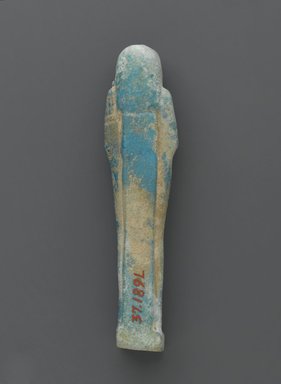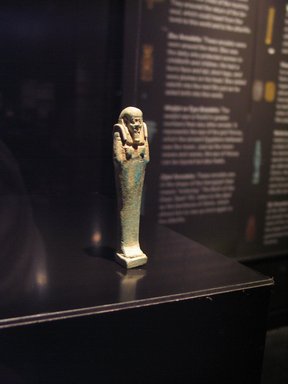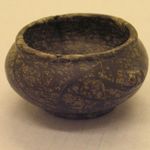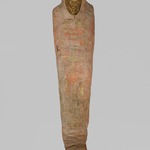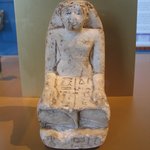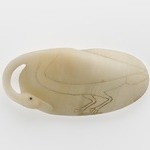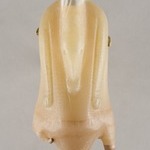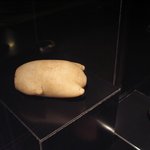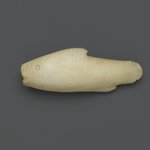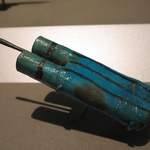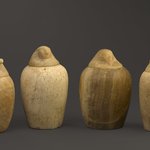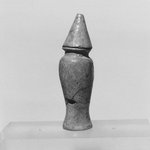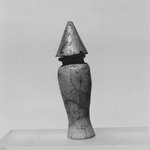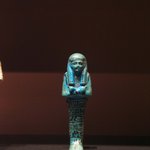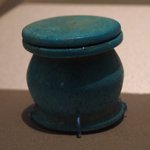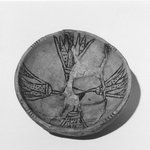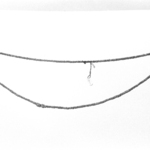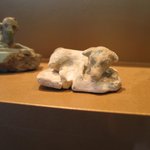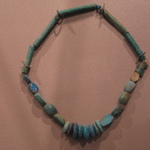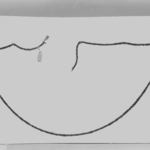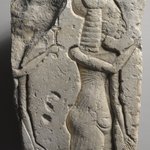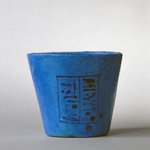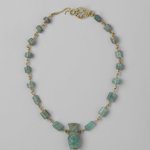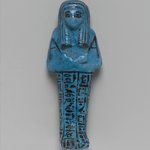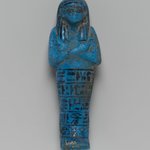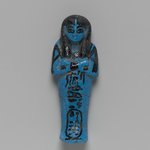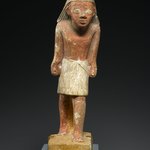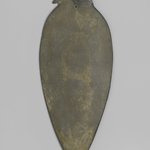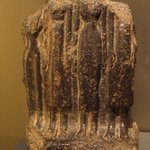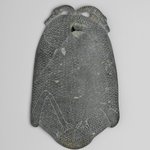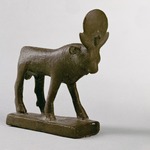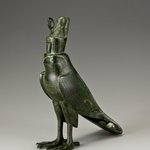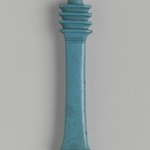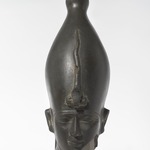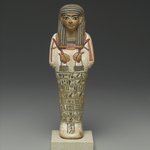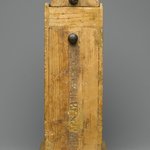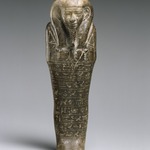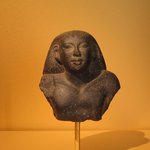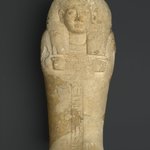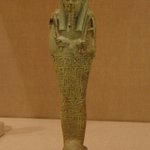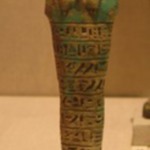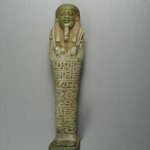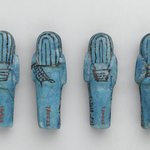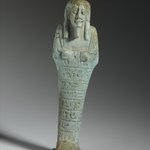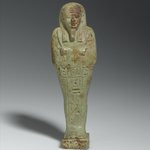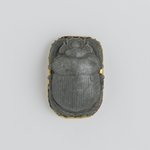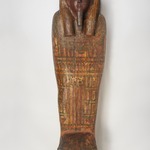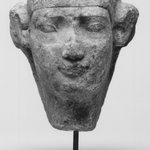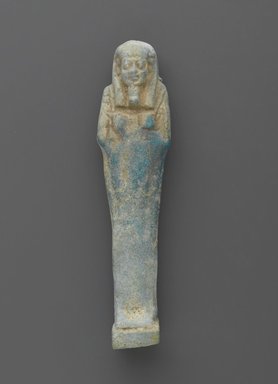

Uninscribed Shabty, 664–525 B.C.E. Faience, 4 1/8 x 1 x 3/4 in. (10.5 x 2.5 x 1.9 cm). Brooklyn Museum, Charles Edwin Wilbour Fund, 37.189E. Creative Commons-BY (Photo: Brooklyn Museum, 37.189E_front_PS2.jpg)
Uninscribed Shabty
Egyptian, Classical, Ancient Near Eastern Art
Shabties were made from stone, wood, faience, and (rarely) metal depending on the tomb owner’s priorities. Amunemhat had a smaller number of very fine shabties, including the painted stone example shown here and a wooden example exhibited nearby. The uninscribed shabty also shown here is one of up to 360 examples—one for each day of the Egyptian year—molded in faience, an inexpensive ceramic material made from sand.
Shabties magically performed agricultural work required of the deceased in the afterlife.
Shabties magically performed agricultural work required of the deceased in the afterlife.
MEDIUM
Faience
DATES
664–525 B.C.E.
DYNASTY
Dynasty 26
PERIOD
Late Period
DIMENSIONS
4 1/8 x 1 x 3/4 in. (10.5 x 2.5 x 1.9 cm) (show scale)



COLLECTIONS
Egyptian, Classical, Ancient Near Eastern Art
ACCESSION NUMBER
37.189E
CREDIT LINE
Charles Edwin Wilbour Fund
CATALOGUE DESCRIPTION
[One of] fifteen blue faience mummiform ushabtis. Only the hands are indicated in relief, each holding a hoe. Each sports a beard and a non-striated tripartite wig. A bag is incised over the left shoulder. The hands are each positioned over the lappets of thw wig. None of these ushabtis is inscribed.
Condition: The group ranges in color from a light blue to green. Some show good traces of glaze while others show no remaining glaze whatsoever. Several show spots of discoloration and one (37.195E) shows chipping on the left side of the head.
Comments: Although these ushabtis did not all come from the same mold, they show such stylistic affinities and are uniform enough in size that we can conclude that they most likely came from the same burial.
MUSEUM LOCATION
This item is not on view
CAPTION
Uninscribed Shabty, 664–525 B.C.E. Faience, 4 1/8 x 1 x 3/4 in. (10.5 x 2.5 x 1.9 cm). Brooklyn Museum, Charles Edwin Wilbour Fund, 37.189E. Creative Commons-BY (Photo: Brooklyn Museum, 37.189E_front_PS2.jpg)
IMAGE
front, 37.189E_front_PS2.jpg. Brooklyn Museum photograph, 2006
"CUR" at the beginning of an image file name means that the image was created by a curatorial staff member. These study images may be digital point-and-shoot photographs, when we don\'t yet have high-quality studio photography, or they may be scans of older negatives, slides, or photographic prints, providing historical documentation of the object.
RIGHTS STATEMENT
Creative Commons-BY
You may download and use Brooklyn Museum images of this three-dimensional work in accordance with a Creative Commons license. Fair use, as understood under the United States Copyright Act, may also apply.
Please include caption information from this page and credit the Brooklyn Museum. If you need a high resolution file, please fill out our online application form (charges apply).
For further information about copyright, we recommend resources at the United States Library of Congress, Cornell University, Copyright and Cultural Institutions: Guidelines for U.S. Libraries, Archives, and Museums, and Copyright Watch.
For more information about the Museum's rights project, including how rights types are assigned, please see our blog posts on copyright.
If you have any information regarding this work and rights to it, please contact copyright@brooklynmuseum.org.
RECORD COMPLETENESS
Not every record you will find here is complete. More information is available for some works than for others, and some entries have been updated more recently. Records are frequently reviewed and revised, and we welcome any additional information you might have.
